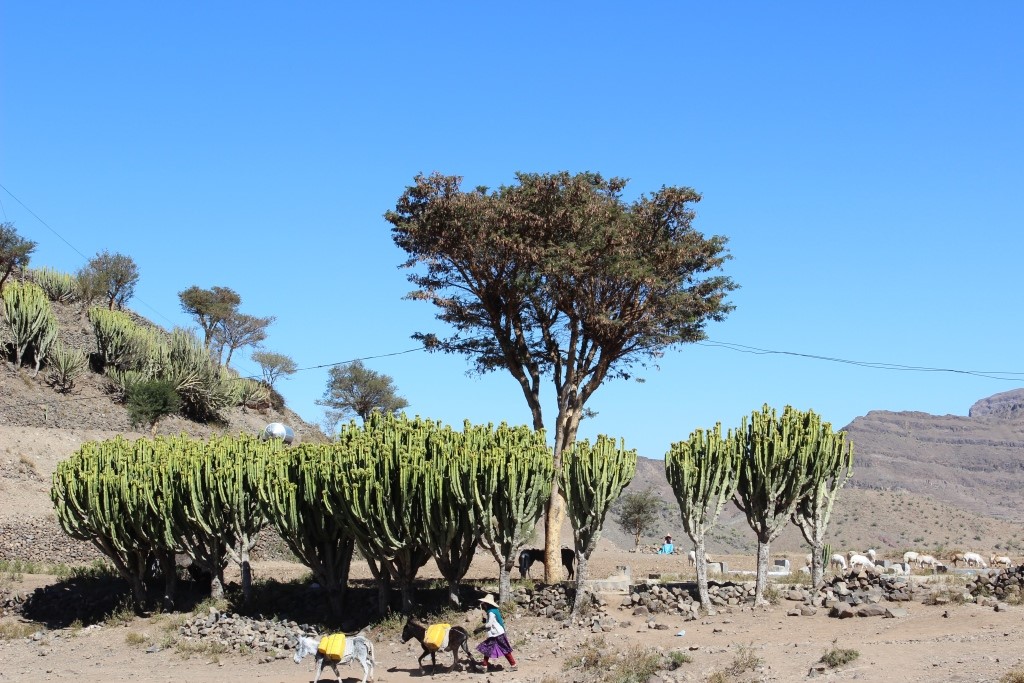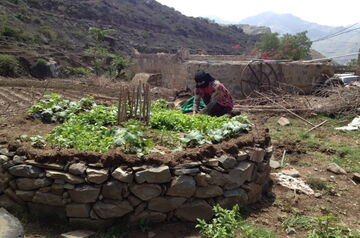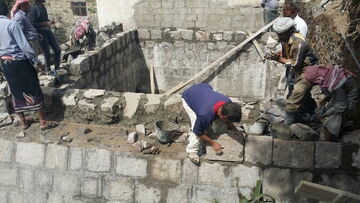Newsletter
Don't miss a thing!
We regularly provide you with the most important news, articles, topics, projects and ideas for One World – No Hunger.
Newsletter
Don't miss a thing!
We regularly provide you with the most important news, articles, topics, projects and ideas for One World – No Hunger.
Please also refer to our data protection declaration.
Yemen is currently experiencing one of the worst disasters. Already ravaged by civil war and hunger crises, now a cholera epidemic has broken out in large areas of the country. For people already weakened by hunger and malnutrition, the disease can quickly become life-threatening. The Deutsche Gesellschaft für Internationale Zusammenarbeit (GIZ) GmbH is one of the few international organisations working in the country and is trying to improve the Yemenis’ nutritional situation and their resistance.

Global Programme, Food and Nutrition Security, Enhanced Resilience – Yemen
5,000 households
June 2015 - June 2020
6,250,000 EUR

According to the Global Hunger Index (GHI), Yemen is one of seven countries in the world whose nutritional status is categorised as alarming. According to current estimates, around 18 million people are affected by hunger and malnutrition, and are dependent on humanitarian aid. Political instability not only has an adverse effect on the food supply situation, but also hampers access to clean drinking water, sanitary facilities and health care. There is not only a shortage of clean water for drinking, but also for personal hygiene and germ-free food preparation. This is exacerbating the current cholera outbreak.
According to current estimates, around 18 million people are affected by hunger and malnutrition, and are dependent on humanitarian aid
Yemen is facing one of the worst epidemics. In the last three years alone, 400,000 suspected cases have been reported. To bring about a sustained improvement in the situation for the population, various issues require attention at the same time; so GIZ is trying to find different ways of providing support for the Yemeni people. One promising approach is the so-called keyhole gardens. These are round gardens which enable women on farms and small farmers to put organic waste, faeces-free waste water and fertiliser into a composting hole in the middle of the round garden. Thus the gardens have a very low level of water consumption – only around 10 litres per week. GIZ provides training and support in setting up the gardens. In addition, the people get seeds and other essential materials so that they can grow nutritious and varied products. Women in particular are given further training opportunities, so that they can gain qualifications that are in demand locally. This includes producing incense, sewing and hairdressing.

However, the problem is not so much the lack of technical know-how as the lack of resources. So GIZ employs workers for fixed periods under so-called cash-for-work arrangements, giving them the chance to take part in community construction projects, such as water collection points and roads, for which they are paid accordingly. In this way the public infrastructure can be improved, and the people can feed themselves and their families with the money that they earn.
Ultimately the measures will help at least a few families through an enormously difficult time, and enable them to lead a more stable life, despite the current crisis.